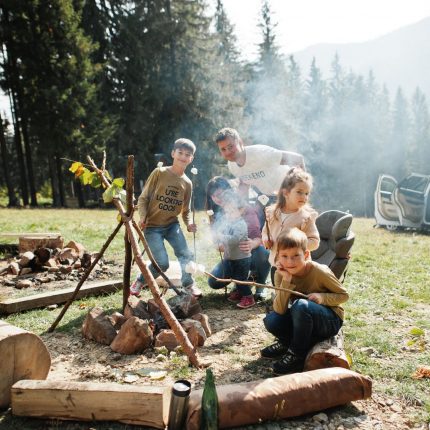As the “regular” school year ends, you may be ready to focus on taking some much-needed time off. While you’re thinking of ways to kick back and relax this summer, remember that to prevent learning loss, your kids need to brush up on the lessons they’ve learned over the homeschool year. Many teachers focus on the slide that math skills take during breaks, but writing skills can also suffer if they’re ignored for too long. Summer is also the perfect time to work on any skills gaps that exist, so your children can get where they need to be before the new homeschool year starts.
Start by assessing your children’s writing skills. The best way to begin is by collecting several writing samples from past year’s lessons. Try to look at a variety of writing types: descriptive, persuasive, informative/explanatory, and narrative. Working with your kids, identify common mistakes and challenges; and create personalized editing checklists. Use these checklists as the foundation for summer writing lessons.
Even if summer probably isn’t the time you want to worry about extended writing projects, targeted, brief writing exercises can really help your children keep their skills sharp. They can even be fun! Here are some ideas to improve basic writing skills:
Improving Grammar and Usage
Parts of Speech: Your children can learn parts of speech (e.g., nouns, verbs, adjectives) by tossing a ball back and forth with you. Each time you throw the ball, provide them with a word. Your children can catch the ball and return it while correctly identifying the word’s part of speech.
a word. Your children can catch the ball and return it while correctly identifying the word’s part of speech.
Sentence Structure: Kids need to learn the types of sentence structures and how to expand short sentences into longer ones (and vice versa). A great tool for practicing sentence structure is a set of refrigerator word magnets. Having kids make up sentences using the word magnets lets them experiment with different sentence structures.
Usage: Usage refers to using words correctly based on their meaning and context. Your children can read books, like those in the Amelia Bedelia series by Peggy Parish, that play with word meanings. They can also brainstorm meanings for homonyms (words that are spelled the same but have different meanings) like “pen” and “fair.” Exercises like these promote flexible thinking too.
Improving Mechanics
Capitalization: Your children can use sorting exercises to understand which words need capitalization and which words don’t. Using word magnets, flashcards, or cut-up texts can allow kids to move words across a table to either category. For a more active version, you can put two hula hoops on the floor and have them run, hop, or skip words to either category.
Punctuation: Punctuation can be tricky, but there are exercises that will help. You can hide punctuation in already written texts and ask your children to guess the missing punctuation, or you can read a text and have them explain why certain punctuation is used or how it would differ if other punctuations were used instead.
Spelling: One way to practice spelling is by focusing on homophones (words that sound alike but have different spellings). Have your kids draw pictures they can associate with the different homophones (e.g., “their house” and “here and there” on a map) and then post them around the house.
Improving Paragraph/Essay Structure
There are also ways to work on paragraph/essay structure without asking your children to write a lot at one time. You can ask your kids to write body paragraphs of essays one at a time and then create an introduction and conclusion paragraph. They can also practice the skills of organizing paragraphs and essays without writing at all. One way to do this is to cut apart a paragraph or essay and create a puzzle. Asking kids to arrange sentences or paragraphs of already (well-written) paragraphs and essays can help them understand how writing can/should flow and appreciate logical transitions between thoughts or topics. Check the original paragraph or essay and discuss any differences in terms of proper order or writing style.
The good news is that, while summer writing exercises can be quick and fun, they can also be very helpful when you’re trying to keep your children’s writing skills sharp for the next school year.
Additional Homeschool Resources
Homeschool Writing Tips from Teachers
Boost Your Child’s Social Skills With Writing
Latest Posts

As homeschooling continues to grow in popularity, more parents are taking on the challenge of providing a comprehensive education that not only meets academic standards but also prepares their…
Read more >
June has come and gone, and summer is in full swing! Whether you're traveling this summer or staying close to home, we hope you're enjoying this time with your family. We wanted this month's…
Read more >
Summer is an all-around favorite season for most people. In the U.S., it’s even more exciting for many of us since we get to celebrate Independence Day! The Fourth of July is a wonderful…
Read more >


